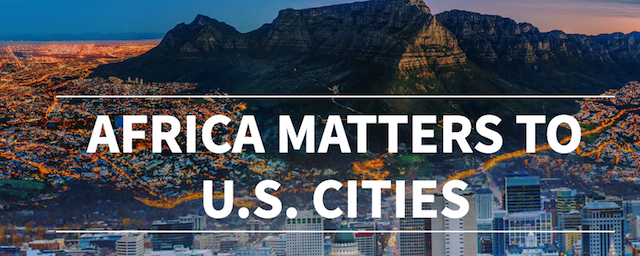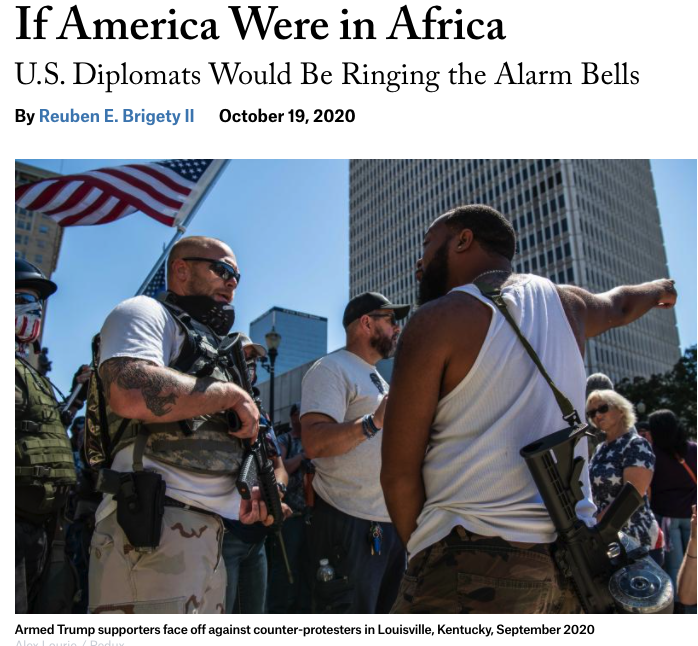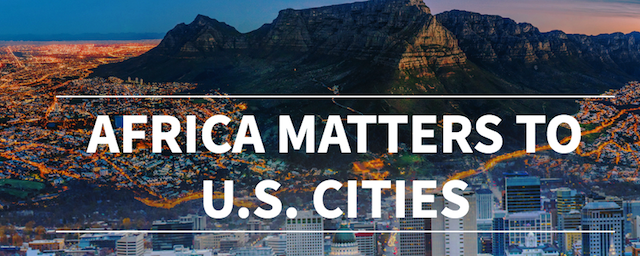 Center for Strategic and International Studies (CSIS)
Center for Strategic and International Studies (CSIS) With Africa and U.S. Cities, a document published by the Washington D.C.-based Center for Strategic and International Studies(CSIS), news about the African continent — its peoples, governments, institutions, and activities — never stops. Coverage of the continent by American-run, as well as African-run organizations, and a mix of others, is what informs us about what is taking place at home and abroad. How this news is reported, why, when, and by whom, goes a long way in determining our knowledge and understanding of the continent.
The continent is a socio-economic, political, and cultural powerhouse. It rivals many other regions of the world in terms of its natural resources, youth population, business, and investment potential. This is a continent of an estimated 1.3 billion people, within 55 countries, and a combined Gross Domestic Product (GDP) of $ 3.4 trillion.
On the continent, a new era is emerging. This includes the African Continental Free Trade Area (AfCFTA), a pathway to grow business, and relations, and lift citizens out of poverty. Outside of Africa, the diaspora is contributing to the American Dream, and the dreams of many other nations, even while they are giving back to the homeland. All of this, amid the coronavirus pandemic.
The continent’s dynamism — its vigor — while sometimes questioned — remains a source of strength. But Africa, the continent, is often looked at as if it is a country, not a continent. And we often pin the continent down to a few issues and paint it with a broad brush, because of its challenges. It should not be this way.
As the disastrous Donald Trump presidency winds down, it’s important that we don’t wait for threats to the free flow of information to emerge before we start talking about the need for fair and objective Africa news and information.
 Redux/Foreign Affairs
Redux/Foreign Affairs This article from Foreign Affairs magazine is highlighted in the 2020 awards report.
Throughout 2020 the organization Africa Agenda scanned hundreds of news channels and publications online to see what stories were trending or not trending, and how they related to the continent. For the ones that caught our attention, we highlighted them and brought them to your attention.
The selected stories in this post are an effort to recognize the hundreds of Africa-focused specialists in the United States, and on the African continent, who throughout 2020 brought us important news and information, despite the circumstances. This continues a process we started in 2018 when we gave the inaugural Best in Africa Reporting award to reporter Gaby Galvin of U.S. News and World report organization for the story ‘America First’ May Put Africa Last. This year we recognize Jude Devermont, director of the CSIS Africa Studies Program for the series, Africa and U.S. Cities and Why Africa Matters to U.S. Cities.
Africa and U.S. Cities is an encapsulation of the role that African immigrants play in not just furthering the so-called American Dream, but also their role in building a new, vibrant, and democratic African continent in the twenty-first century. Devermont’s reports tell the “Africa in America” story in a form not imagined before. Amid the Covid-19 pandemic, it’s the real African news that wasn’t told by many news organizations in 2020.
For all of the stories we selected this year, we gathered perspectives from people with connections to the continent. This includes Renee Harmon, an instructor in the School of Global Environment Sustainability at Colorado State University in Fort Collins, Kenneth Usongo, a professor of English and Cameroonian native, and Scott DuPree, an international consultant in Denver.
Harmon, who is also a former research assistant and social media coordinator at CSU’s Africa Center, said while Americans generally focus on negative stories about Africa, these selected stories can help them relate to the continent, and increase their literacy of Africa.
“Americans traditionally read stories out of Africa depicting war, genocide, malnutrition, and other negative images. While it is important to know about these horrific events to work towards peace, reconciliation, justice, and positive solutions, it is also important that Americans have access to diverse stories about Africa,” she said. “Education is part of the healing and improving the process, and one way Americans can gain knowledge and increase their literacy of Africa is through accurate, credible, diverse news articles.”
Usongo, who lives in Aurora, Colorado, a city that boasts a diverse African community, thinks the Ngarbuh massacre in Cameroon in February, remains one of the most under-reported Africa stories of 2020. He says we need to give thanks to the British Broadcasting Corporation (BBC) for its coverage of the story
For Dupree who has taught at several metro-Denver area universities, the perspective about our “interconnected world” is often lost in the Africa reporting he sees. He says there are few resources available to reporters and citizens to help them understand why the continent is important. “Efforts like the CSIS reports can fill this critical gap. That is why we at Africa Agenda are delighted to spotlight this resource for our 2020 award,” he said.
You can see a list of all the selected stories via this link.

